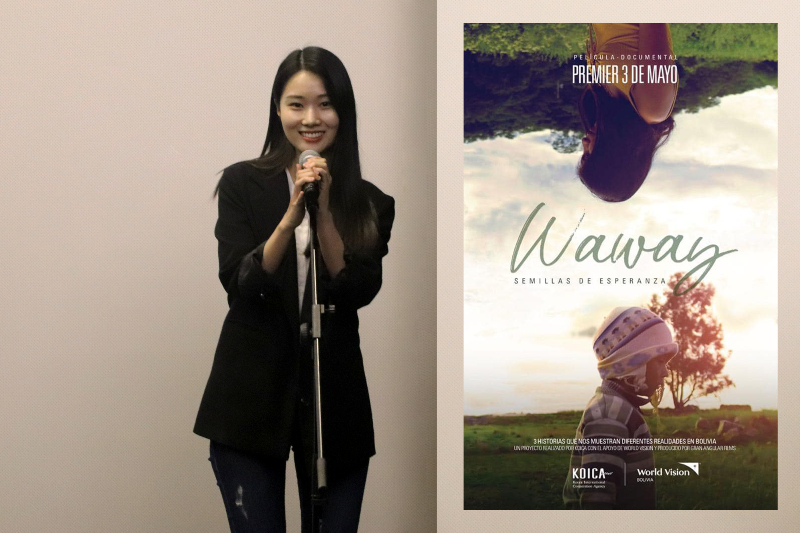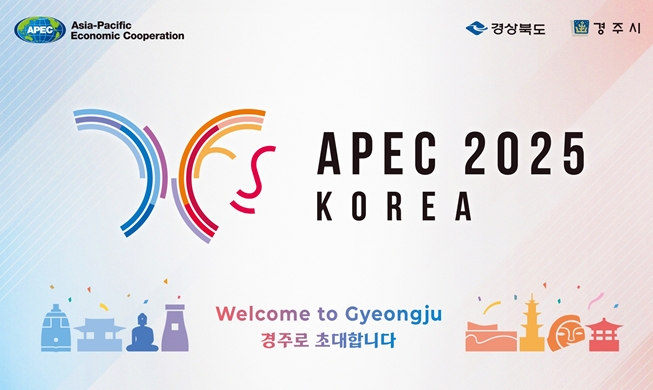- 한국어
- English
- 日本語
- 中文
- العربية
- Español
- Français
- Deutsch
- Pусский
- Tiếng Việt
- Indonesian
By Honorary Reporter Ericka Orellana from Bolivia
Photos = Ericka Orellana & KOICA's Bolivia office
The documentary "Waway: Seeds of Hope" directed by Kim Sung-min, a broadcast journalist and volunteer at the Bolivian office of the Korea International Cooperation Agency (KOICA), on May 3 made its premiere in La Paz, Bolivia.
The 30-minute documentary covers water shortages, child malnutrition and sex education through the stories of three families in rural Bolivia. "Waway" means "my child" in the indigenous Quechua language, with Kim calling it "the perfect title for the documentary, which is about children."
She added that despite the heavy subject matter, she hoped that her film is "a seed of hope" to create awareness of and spur action for the problems depicted.
The following email interview with the director was conducted from May 3-6.
Briefly introduce yourself and your work.
I'm a broadcast journalist in Korea. I arrived in Bolivia in May last year and worked mainly in La Paz. As a KOICA volunteer, I've worked for World Vision's communication team over the past year. The best thing about the KOICA program is bringing our ideas to the workplace and creating something new by collaborating with a domestic team.

Documentary director Kim Sung-min speaks next to a poster of her film.
Which inspired you to make this documentary?
This is my first time directing a documentary, but I had a very clear vision from the beginning. I was impressed with the World Vision Canada documentary "Pressure Baby" because of the protagonist's tough situation.
What is your documentary about?
It's a combination of three 10-minute documentaries that each presents a separate story in three regions of Bolivia -- Vacas, Caripuyo and Camiri -- on the themes of water, nutrition and sex education. It shows how the families' struggles and their problems are related to infant mortality.
For example, the first story is about a family that lost its youngest son after he drank dirty water that wasn't properly boiled. The main theme is water but also shown is the role in the tragedy of an environment with no nutritious food, nearby medical support or electricity.

Still from "Waway"
Why did you decide to make this documentary?
Bolivia's high mortality rates of infants and children under 5 caught my attention while I was learning about this country, probably because Korea is experiencing the opposite problem of the world's lowest birth rate. I realized that the root causes of the three problems shown in the film are what World Vision Bolivia is working on and wanted to raise awareness of the issues and show what World Vision Bolivia is doing about them in a subtle way.
How was the production process?
Bolivia is a unique country with regions having completely different cultures and climates. While in Caripuyo and Vacas, I thought I'd freeze to death and I found Camiri extremely hot and humid with lots of insects. I got salmonella and was bitten by so many bugs but overall, it was an amazing experience.
What memories during production stand out?
All the families we visited served us food even if they barely had enough for themselves. I want to learn and exhibit the kindness they showed us even in such difficult situations.

"Waway" director Kim Sung-min (center) stands with executives from the Bolivian offices of KOICA and World Vision.
How can people see your documentary?
It will be available online very soon on the KOICA and World Vision platforms. We're working on allowing more people around the world to see the film.
What is your final message to Korea.net readers?
I hope we can all plant seeds of hope together.
msjeon22@korea.kr
*This article is written by a Korea.net Honorary Reporter. Our group of Honorary Reporters are from all around the world, and they share with Korea.net their love and passion for all things.
Most popular
- Grammy-winning producer calls Suga of BTS 'amazing artist'
- 'Universal love, family' themes fuel success of 'King of Kings': director
- Council sets minimum hourly wage in 2026 at KRW 10,320
- Expansion of foreign app system raises tourist convenience
- Nat'l population diversity rose nearly 8% from 2018-22: study
